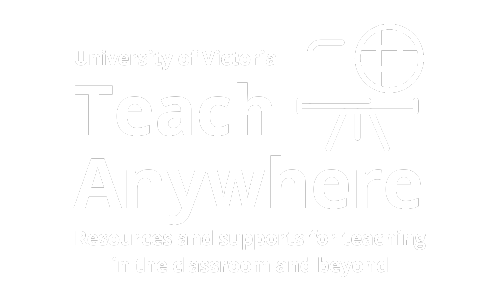All assessment practices are not created equal; some discourage violations, others create contexts where violations of academic integrity are more likely to occur. Teaching strategies and methodologies that are more focused on learning process/outcomes (rather than solely-content focused) are less likely to aggravate cases of plagiarism amongst students (Koul et al., 2008). Students respond best when they have clear guidance regarding the learning that they are expected to demonstrate and believe that they have been provided with a fair opportunity to demonstrate their knowledge. Course design, as well as assignment design, are integral to creating a learning environment that promotes academic integrity. Further, research consistently demonstrates that student connection with the learning environment, instructor and TA are important to ameliorating academic integrity violations (Kelly, 2014; Lang 2013). In relation to assessment practices, current learning and teaching literature provides a set of practices to support academic integrity.
Strategies to support academic integrity
- Clear descriptions of learning that is expected to be demonstrated through the assessment (learning outcomes and scope of the exam).
- Good articulation of the assessment requirements (e.g. exam, type of exam, examples of the kinds of questions that will be used; inclusion of practice questions). Familiarity with online and electronic exams over time is likely to reduce students stress levels, and thus, may also reduce the likelihood of cheating.
- Assessment strategies that require either a) individualized responses demonstrating higher-level thinking or b) exam formats that vary the exam between students (different sequencing of questions).
- Using multiple versions of exams sends a message that the professor cares about integrity in the classroom.
- Assessment strategies where students are required to demonstrate how they came to the answer as well as their final answer.
- A range of assessment strategies within a course where students have a variety of means to demonstrate their learning.
- Access to an instructor in preparation for the assessment and, in the case of exams, during the exam period to respond to questions of clarification.
- Marking strategies that are consistent across questions and ideally across sections of a course.
- Marking strategies that provide “marks for evidence of thinking” as well as credit for final answers.
- Assessment strategies that provide ample time for taking an exam. Instructors, concerned about academic integrity, often use “time” as a deterrent for violations of academic integrity or time as a pseudo-measure of student learning. Used in this way, time increases the likelihood of academic integrity violations.
- Online final assessments that integrate authentic assessment principles, such as the incorporation of real-life learning process and unstructured problems that require the application of relevant skills and knowledge have been found to be effective not only deterring students from cheating but also leading to higher quality learning outcomes.
- Assessment strategies that incorporate Universal Design for Learning (UDL) principles (http://udloncampus.cast.org/home) are helpful as they attend to accommodation requirements (e.g. length of time of exam) and provide options for all students to demonstrate learning.
When do violations of academic integrity occur?
Violations of academic integrity are more likely to occur in learning and teaching contexts where instructors do not address the above factors. In addition:
- While there is no consistent evidence in the teaching literature that violations are more likely to occur in the online environment (mixed findings in the literature), the online environment creates both different opportunities for violations and, in many instances, more evidence that instructors can use to identify potential violations.
- Further, high risk/jeopardy situations where students perceive that they have little control or little opportunity to demonstrate learning (e.g. repeated timed exams) have been shown to elicit much higher levels of academic integrity violations.
Finally and importantly, the literature does indicate that students appear more likely to cheat when instructors do not enforce academic integrity policies. It is therefore important to have assessment security strategies in place to identify potential violations.
Excerpt from the UVic Academic Integrity Framework, see the original document for references and additional information.
Frequently Asked Questions
What should I do if I suspect a violation of academic integrity in my class?
UVic has a policy on Academic Integrity, which you can find in both the undergraduate and the graduate academic calendars. The policy addresses the main types of academic integrity violations, as well as procedures for dealing with these. Please review the policy before acting on any allegation.
Who should I contact if the policy does not address the violations I am experiencing in my classroom, or am unsure whether to approach a student to discuss a violation or possible penalty?
Your chair or director should be your first contact if you are suspecting a violation. An instructor documents a violation, but does not make decisions. It is also important that a violation is treated as an allegation until “a determination is made that compelling information exists to support the allegation …”.
Where can I get guidance on the UVic approach to academic integrity beyond policy regulations?
The Academic Integrity Framework explains how UVic supports a culture of academic integrity.
Are there additional supports to help build a culture of academic integrity in the classroom?
You have the option of adding an academic integrity pledge on your syllabus or directly on the Brightspace setup of assignments. There is also a student-focused Integrity Matters course on Brightspace. Self-enrolment is open to all students. The course is based on scenarios related to the principles of academic integrity and can be taken independently or made into an assignment. UVic also has other resources on academic integrity that are updated regularly.
